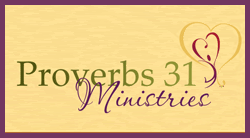By Erin Bunting
Outside my office window are two small mail-order apple trees that my husband and son planted ten years ago. When the plants first arrived they looked like a couple of dead sticks -- no branches, no leaves, their sparse, scraggly roots wrapped in plastic. Nothing suggested what kind of trees they’d someday grow up to be except for little labels marked “MacIntosh” and “Liberty.”
For the first couple of years, the trees grew leaves on their weak, feeble branches, but no apples. Finally one spring, they blossomed and bore their first fruit – small, hard, spotted, ugly, sour and inedible.
Eventually, the trees grew enough branches to require pruning. Knowing nothing about the proper pruning of fruit trees I asked a local orchard owner for advice. He drew me a diagram, gave me a few tips, and I also bought a book. Every year since, in the late winter when the trees are still dormant, I head out with my pruning shears and sink the sharp, hooked blades into the tender bark, lopping off dead, damaged or diseased limbs, useless shoots and branches. Later, when the weather warms a little and the branches are more pliable, I attach cords to any upward-reaching limbs and bind them to the trunk, training them into the characteristic graceful downward curve of apple trees.
They always look a little pathetic after pruning – shorn, bound and naked, exposed. But miraculously, a couple of months later, buds, then leaves then fragrant blossoms burst open gloriously and adorn those once-bare branches. In late June, tiny apples replace the blossoms. When I untie the cords the branches hold their new shape. With proper pruning, those little sticks have grown into flourishing, fruitful trees. Every year they yield not only more apples, but larger, tastier, prettier, healthier ones. Last fall I gathered enough to can several quarts of homemade applesauce.
I prune my apple trees to remove useless, superfluous growth and to allow in more sunlight, which encourages fruit production and ripening. In the same way, God disciplines me to remove what’s useless and superfluous, sinful, selfish or simply unnecessary, from my life. His pruning allows more “Son-light” in to encourage spiritual fruitfulness in me, the “fruit of the Spirit” which is “love, joy, peace, patience, kindness, goodness, faithfulness, gentleness and self-control.” (Galatians 5:22-23)
Jesus described God as “the gardener” who “cuts off every branch in me that bears no fruit, while every branch that does bear fruit he prunes so that it will be even more fruitful.” (John 15:2) The Greek word for prune, “kathairo,” means to purge or cleanse of filth or impurity. It’s what James meant when he encouraged Christians to “get rid of all moral filth and the evil that is so prevalent and humbly accept the word planted in you, which can save you.” (James 1:21) By removing what’s harmful, diseased or useless, God’s pruning makes way for healthy spiritual growth.
Pruning takes time, patience and know-how. A wise fruit grower knows exactly when, where and how much to prune. He also knows that over-pruning can damage or even kill a growing tree. It must be done gradually, in the proper season, a little at a time over a tree’s entire life. God, too, knows exactly when, where and how much pruning I need and can withstand. Like a wise gardener, He disciplines me gradually and in the proper season as I grow in Christ’s likeness. Even though I was “made perfect” by Jesus’ sacrifice on the cross, I am constantly in the process of “being made holy” (Hebrews 10:14). With His discipline, God trims, shapes and trains me a little at a time, removing what’s harmful, sinful or simply useless so that I may achieve wholeness and maturity, and bear healthy fruit.
Still, even though I know that pruning is good for me, sometimes it hurts -- a lot. The writer of Hebrews said, “No discipline seems pleasant at the time, but painful.” (Hebrews 12:11). Remember, pruning requires the sharp blades of loppers, shears, snips, and saws. Sometimes, God has to wound me before He can use me. But thankfully, His cuts are kind, clean and precise, and always for my good – to shape me into the disciple He wants me to be.
Like my apple trees, sometimes I feel a little pathetic after pruning – shorn, bound and naked, exposed. But God promises He’ll never abandon me in that condition. Rather, after I have suffered a little while, He promises to restore me and make me “strong, firm and steadfast.” (1 Peter 5:10) And then, as I continue to grow, miraculously, I blossom. Tended by God’s skillful discipline, my “feeble arms and weak knees” are strengthened and able to hold their new shape. And eventually, I bear the fruit of a strong, firm, well-pruned life -- a “harvest of righteousness and peace.” (Hebrews 12:11) Sure, pruning hurts. But the results are worth it. Like Oswald Chambers said, “To be hurt by Jesus is the most exquisite hurt conceivable.”
Jesus Himself said simply, “Make a tree good and its fruit will be good. Make a tree bad and its fruit will be bad, for a tree is recognized by its fruit.” (Matthew 12: 33)
With proper care and pruning, I’ve watched a couple of dead-looking sticks grow into productive, fruitful trees. And now, every fall I look forward to the sweet, juicy crunch of fresh, crisp Macintosh and Liberty apples. Likewise, with proper care and pruning, I’ve experienced God’s shaping and transformation of me, a little at a time, closer to the image of Christ. Even though it’s sometimes painful and I have lots more growing to do, I’ve learned to patiently welcome the “exquisite hurts,” the careful cleansing cuts administered by my heavenly Father.
Erin Bunting is a writer, speaker, actor, athlete and artist whose mission is to communicate God’s truth clearly, creatively, responsibly and relevantly. Erin holds degrees in journalism, theater arts and English. She has recently contributed essays to “P31 Woman,” “FullFill,” and “Kyria.” She lives in Ohio with her husband and two sons.
Monday, March 1, 2010
Subscribe to:
Post Comments (Atom)












3 comments:
Wow Erin! You have conveyed God’s truth clearly, creatively, responsibly and relevantly to me. Thank you for a beautiful post. In His Love,
Caroline
Beautifully spoken. Thank you Erin. May He keep pruning you & causing His fruit to grow. I will be sharing this with MANY others. Thank you.
thank you!! I've been studying John 15 and meditating on these truths for a while....and you summed them up beautifully!!
I feel like I had two years of pruning....necessary and painful. Now I am a new creation and grateful to be flowering again--praise God!
Post a Comment